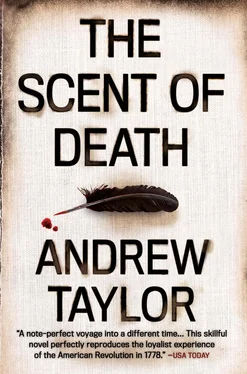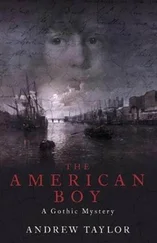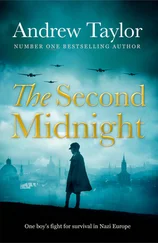‘I believe I know the gentleman. That is to say, I have come across him once or twice.’
‘Indeed?’
‘I have a position at the American Department,’ I explained. ‘As you know, Mr Yelland acts as the British man of business for many Loyalists. He sometimes favours us with communications on their behalf.’
That was an understatement, as Noak must surely have known. Mr Yelland was one of several London attorneys who had reason to bless this unnecessary war, for it was proving very lucrative for them. He and his colleagues kept up a steady flow of letters to the Department. London was packed with displaced Loyalists who were convinced that the American Department owed them compensation for the losses they had sustained because of their attachment to the Crown.
‘Will you stay long in New York, sir?’ Mr Noak asked after a pause.
‘A month. Possibly two. Lord George has entrusted me with a commission and I do not know how long it will take.’
Mr Noak nodded, as if making a token obeisance to the august name of Lord George Germain, the Secretary of State for the American Department. The truth of my appointment was more prosaic: Mr Rampton, one of the two under secretaries, had decided that I should go to New York. Lord George had signed the necessary order, but I was not perfectly convinced that His Lordship knew who I was.
‘Perhaps we may encounter one another there,’ Noak said.
‘Perhaps, sir,’ I agreed, privately resolving that for my part I would not pursue the acquaintance once we reached America.
‘Where will you lodge?’
‘At Judge Wintour’s. He is an old friend of Mr Rampton, the under secretary.’
‘Ah yes,’ he said. ‘Of course.’
‘Are you acquainted with the Judge?’
‘Only by reputation, sir.’ Mr Noak paused. ‘They say his daughter-in-law is a great beauty.’
‘Indeed.’
‘And the heiress to Mount George, as well.’
‘I believe the air is growing chilly. I think I shall go below.’
‘Once seen,’ Mr Noak said quietly, ‘never forgotten. That’s what they say. Mrs Arabella Wintour, I mean.’
At midday, a single cannon boomed from the battery commanding the entrance of the North and East rivers.
‘The noon gun, sir,’ the young officer told me with a knowing air as he took out his watch to adjust the time. ‘You’ll soon be ashore.’
Twenty minutes later, we were at last permitted to disembark. We were brought in at Beekman’s Slip upriver from the Brooklyn ferry to keep us at a distance from the still-smouldering fire.
The quayside was thronged with soldiers, seamen, officials and porters. It had grown even hotter, with a close, airless warmth. I threaded my way between boxes, barrels and ropes. Men barged into me. Once I tripped and nearly fell. After five weeks aboard a ship, dry land had become alien, even hostile.
Despite my official standing, I was obliged to wait my turn to show my papers and explain my business to three separate individuals. Meanwhile the baggage was brought ashore. A line of glistening negros carried it to the customs shed. The few passengers from the Earl of Sandwich joined the queue outside where new arrivals sweltered in the sun.
The south-westerly breeze had dispersed most of the smoke. Beyond the shed the buildings of the shabby little city stretched away to the west, sloping gently up towards the soot-stained tower of a ruined church. Mr Noak had told me that this was Trinity Church, damaged in the first fire two years earlier just after the rebels had evacuated New York, when so many houses and public buildings had been destroyed. He wondered why no one had troubled to repair it.
There was a stir at the guard-post by the entrance to the slip. A moment later a portly gentleman strode towards the customs house with the sergeant of the guard on one side and a harbour official on the other. The latter indicated me with a wave of his hand, and the gentleman surged forward, sweeping off his hat. He was a tall, finely dressed man with an upright carriage and florid face.
‘Mr Savill?’ he said, waving a crisp lawn handkerchief like a signal flag. ‘Your servant, sir. I’m Charles Townley, and so very much at your service. A thousand pardons – you should not have to stand about in this heat. I should have been here to greet you two hours ago but my clerk is ill and, to make matters ten times worse, this damned fire has thrown everything awry.’
Mr Townley’s arrival had an instant effect on my fortunes. A customs official hurried over with two negros carrying my boxes and valises. There was no need, the official said, for the formality of searching them and, at Mr Townley’s suggestion, he would have them instantly conveyed to Judge Wintour’s house. My pass was countersigned and I was free to go.
As I left, I bowed to Mr Noak, waiting silently in the queue, and said something civilly non-committal about our no doubt meeting again.
‘Who was that?’ Townley asked as we passed the barrier manned by two sweating sentries.
‘A shipboard acquaintance,’ I said. ‘No one in particular.’
‘You will not mind if we walk, I hope? We have not far to go and it will be quicker on a day like this.’
For the first few hundred yards, the solid ground felt unyielding and inhospitable beneath my feet. Nor was the city itself more welcoming – it was a veritable anthill, packed with hurrying, wild-eyed people, many of them carrying their belongings on their backs, and with wagons and carriages rumbling over the stones. The streets were paved and tree-lined but narrow. I felt the buildings were closing in on me and yet, after the confined ship, there was also an unsettling sense of limitless space. The air smelled strongly of burning.
‘It’s busy enough on any other day,’ Townley observed. ‘But the fire has made everything ten times worse. The world and his wife are abroad. If they haven’t lost their homes then they wish to gawp at those who have.’
‘Is the damage considerable, sir?’
‘Bad enough. Fifty or sixty houses are gone – perhaps more. It began in the middle of the night over there to your left, near Cruger’s Wharf and Dock Street. We have fire engines, of course, but our men were overwhelmed by the speed of it, and there were difficulties with the pumps.’
‘Has there been loss of life?’
‘No, we have been spared that, I believe. Through the mercy of God.’
‘The Captain told us that the fire may have been laid deliberately.’
Townley nodded. ‘It’s a strong possibility, in my opinion. The rebels care nothing for their fellow Americans. They endanger the lives of the innocent without a second thought. I believe the Commandant is to post a reward of a hundred and twenty guineas for information about the incendiaries.’
He took me first to Headquarters, a short step away, for all newcomers to the city were obliged to register with the authorities.
‘You should meet Major Marryot as soon as possible,’ Townley said. ‘I had hoped to make you known to him now, but his clerk says he has been called away. You will see a good deal of him, I’m sure, in the course of your duties. He deals with both the Provost Marshal and the city’s Superintendent of Police, as well as with the Deputy Adjutant General.’
‘In that case, sir, would you be good enough to direct me to Judge Wintour’s? I should pay my respects to my host.’
‘Ah.’ Townley tapped his nose, which reminded me of an axehead bent a few degrees out of true. ‘I am before you there, sir. I called on the Judge this morning with the news of your arrival. He asked me to convey his compliments to you, of course, and he begs you will do him the favour of calling on him after dinner, when they will have everything in readiness for you. But you must permit me to turn the delay to my own advantage. It would give me immense pleasure if you would dine with me.’
Читать дальше












